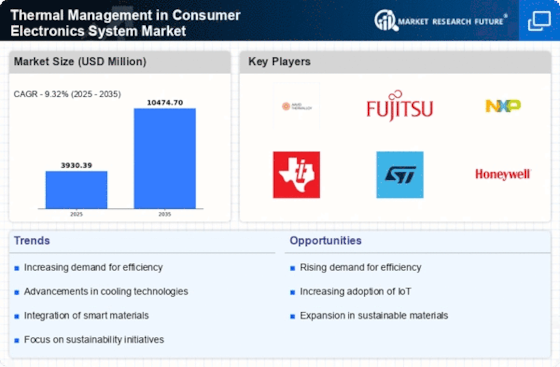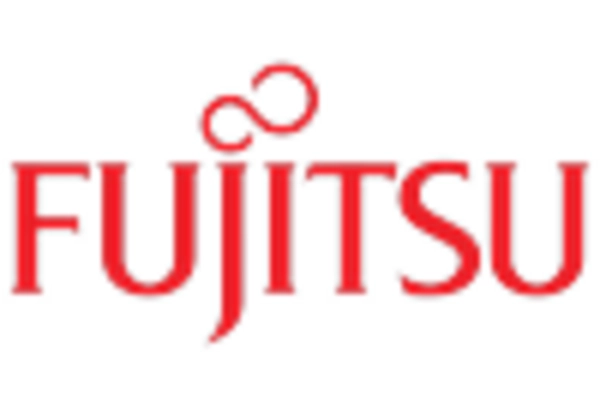Market Trends
Key Emerging Trends in the Thermal Management in Consumer Electronics System Market
In the consumer electronics system market, several significant trends are evident prompted by continuous advancements and demand for high-end devices that requires lower energy consumption per joule but higher power even as their size is reduced. An important trend in this industry is increased wants for heat sinks that are very effective. As these consumer electronics such as smartphones, laptops, and gaming consoles are more powered with upgraded features this generates heat when they are functioned. Through this, there has been a high demand in the manufacture of advanced thermal management technologies that are capable if eliminating heat from devices and preventing them from overheating. Manufacturers are looking for improved cooling methods that will provide more efficient solutions for the design-related problems, which involve heat sink designs, thermal interface materials, and various types of coolers.
Worthy of note, it is also necessary to emphasize the importance of energy efficiency along with other tendencies in thermal management market for consumer electronics. But as consumers and producers focus on sustainability is marked by an increasing knowledge of environment damage about electronic devices. Thousands of thermal management solutions that are developed to minimize the energy consumption by providing enough and effective heat transfer rate. Based on design innovation and technology, manufacturers are developing energy-efficient cooling systems that increase the performance of consumer electronics besides the duty to reduce carbon footprint. This trend follows across regions directives for eco-friendly products and can drive purchases in the consumer electronics market. The thermal management market also gets influence due to the proliferation of devices that are highly-compact and portable in nature. The modern-day consumer expects sleek and lightweight gadgets that do not surplice on performance. In the same breath, this trend proves to be a challenge for thermal management solutions as the heat dissipation components available space is severely constrained.
Therefore, the attention is focused in establishing and producing small-size efficient cooling systems as vapor chamber Cooling technique and phase-change materials are increasingly being used to fulfill thermal demands of Micro Innovative Device (MID). Using thermal management effectively in electronics that lack a lot of space is becoming an advantage, at the least one that makes companies popular amongst their competitors. In addition, growing EVs is boosting thermal management trends for consumer electronic products. Electric drivetrains, battery systems as well as charging electronics are ever developed ascending with the popularizing of electric cars. Sufficient heat is produced by these elements while working, which requires sophisticated means of thermal management. The market of consumer electronics witnesses a spillover effect from the automotive sector as new innovations and technological developments in thermal management technologies that can manage the special problem associated with dissipation heat challenges in electric vehicles, takes place.
















Leave a Comment